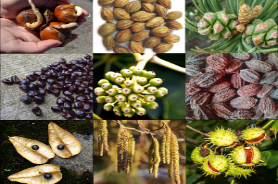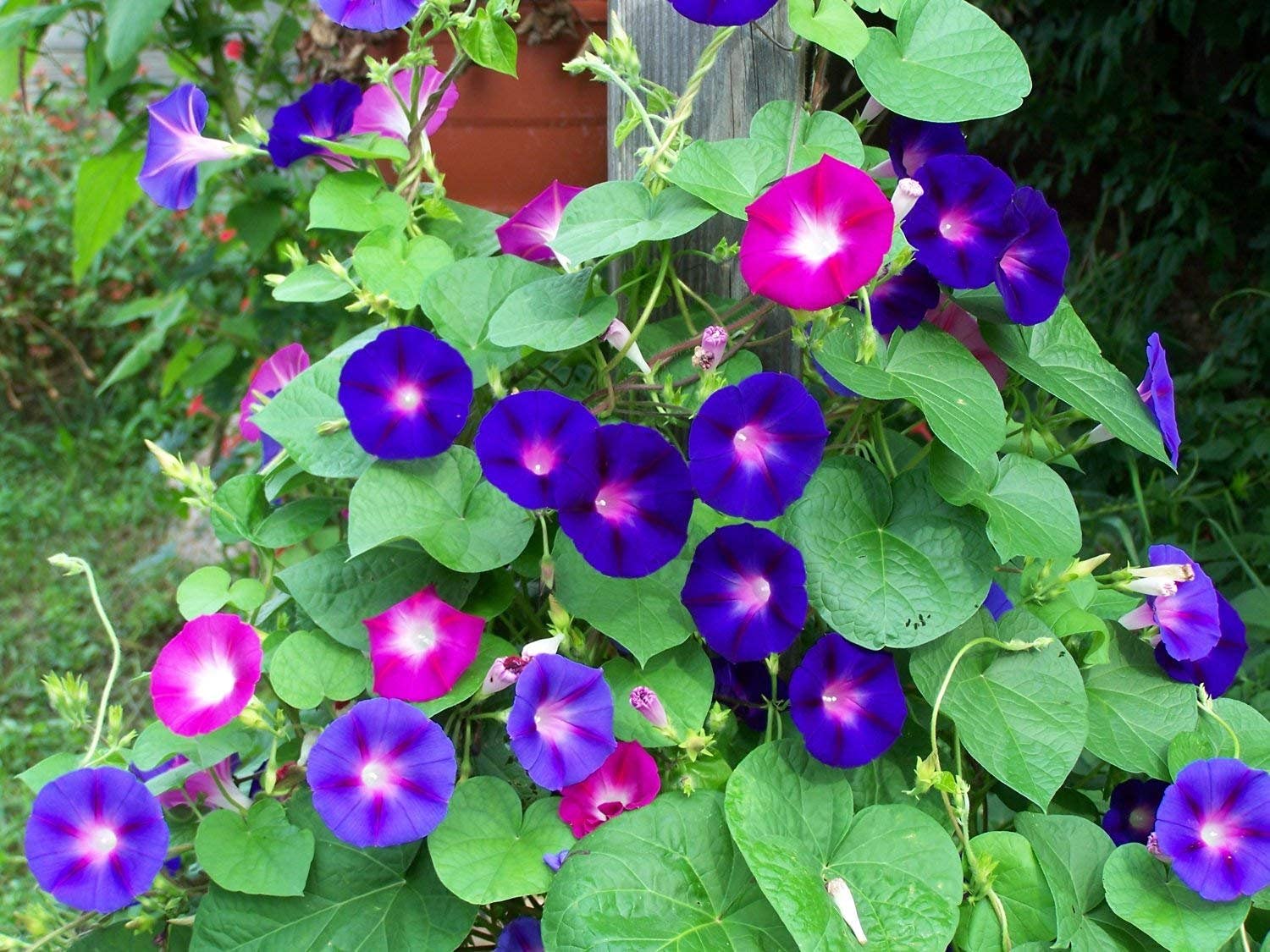Ipomoea is a genus of flowering plants in the family Convolvulaceae, commonly known as morning glories. These plants are renowned for their beautiful, trumpet-shaped flowers and vigorous growth. Here is a detailed description of Ipomoea:
**Appearance**
Ipomoea plants come in various forms, including vines, shrubs, and perennial herbs. They typically have heart-shaped or lobed leaves that vary in size and texture depending on the species. The flowers are the highlight of Ipomoea, with trumpet-shaped blooms in a wide range of colors, including shades of blue, purple, pink, red, and white. Some varieties also feature attractive variegated foliage.
**Cultivation**
Ipomoea species are primarily warm-weather plants, thriving in tropical and subtropical regions. They prefer full sun exposure and well-draining soil. Many species are vigorous climbers and require support or trellises for vertical growth. Some varieties, such as Ipomoea purpurea (Common Morning Glory), are often grown as annuals, while others, like Ipomoea batatas (Sweet Potato Vine), can be grown as perennials.
**Uses**
Ipomoea plants are mainly cultivated for their ornamental value. The stunning flowers of morning glories are favored for their beauty and ability to cover fences, trellises, or walls. They also attract pollinators like bees and butterflies. Some Ipomoea species have edible parts, such as the tuberous roots of Ipomoea batatas, which are cultivated as sweet potatoes for consumption.
**Symbolism**
Morning glories, as a symbol, are often associated with beauty, love, and the dawning of a new day. In some cultures, they represent affection and the fleeting nature of life. Morning glories have also been used in traditional medicine in some regions for their potential medicinal properties.
**Cultural Significance**
Ipomoea holds cultural significance in different regions. Morning glories are celebrated in many cultures for their beauty and are often grown as decorative plants. In some traditions, the flowers are used in religious ceremonies or as offerings. The plant’s name “Ipomoea” is derived from the Greek words “ipo” meaning “bind” and “omoea” meaning “resembling” or “like,” referring to its climbing habit.
**Conclusion**
Ipomoea, or morning glories, are flowering plants known for their vibrant flowers and climbing growth habit. With their diverse colors and attractive foliage, they bring beauty and charm to gardens and landscapes. Whether grown for their ornamental value, edible tubers, or cultural symbolism, Ipomoea plants continue to captivate gardeners and flower enthusiasts with their stunning displays and graceful presence.













Reviews
There are no reviews yet.